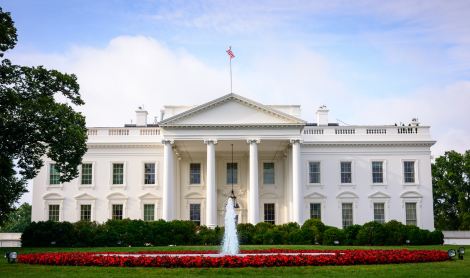Guest Post from Rich Haglund, General Counsel and Chief Operating Officer for the Tennessee Achievement School District
Over the last several years, stakeholders in Tennessee wondered whether changing the law to make Tennessee charter schools their own Local Education Authority (LEA) would solve some of their challenges.
For school operators from states where charter schools are or may be their own LEA, that criterion is thought to be a large factor in a charter school’s success. Operators wondered, for example, whether a change in LEA status would provide more flexibility in the provision of special education services, or provide easier access to bond funding for facilities. In Tennessee, charter schools receive 100 percent of state, local, and federal funding, and may seek waivers from many laws and rules. The operational autonomy of charter schools has at times appeared to hinge not on student performance, but on the politics of authorizing and personal relationships.
As advocates of the notion that there is no “silver bullet” to meet the educational needs of all students, we should be wary of suggesting there is one right way to do anything, especially one LEA status that works best for all public charter schools. We should approach changing the law cautiously, since the process of changing laws may result in unintended statutory changes or practices that are less than helpful. In Tennessee, for example, anytime a section of statutory code is opened to accomplish one purpose, it is opened for amendments that may do more perceived harm to the law than the hoped for positive change. Opening a section of the code to, for example, align public charter school bidding requirements with LEA bidding requirements, opens the section of the code defining teacher licensure, financial reporting, governing body training, and special education requirements applicable to charter schools.
The National Alliance for Public Charter Schools has advocated for “[f]iscally and legally autonomous schools” but has resisted taking “a position on whether it is preferable for a public charter school to serve as its own LEA or not.”
The Alliance articulates some advantages and disadvantages of each approach. As its own LEA, a charter school may receive state and federal categorical funding directly, rather than through an LEA. Charter school LEAs will, however, have to take on compliance operations that an LEA may be able to perform more efficiently. And the surrounding LEA will have no incentive to lend its expertise or resources to meeting the needs of any students, including those with special needs.
School operators may argue that LEA status is necessary to meet the needs of students with disabilities according to the school’s design and the requirements of federal and state special education laws. Without changing the law, however, Tennessee LEAs and other stakeholders have made significant improvements to the special education operating environment for all schools. State monitors have worked with LEAs and schools to ensure that charter schools are treated like any other school in the LEA for special education purposes, and LEAs have developed fee schedules to allow charter schools to use Individuals with Disabilities Education Act funds to pay any service provider (including, but not limited to, LEA staff).
As we discuss LEA status, we should recognize that the discussion takes place in a broader context, and a chartering landscape that has changed significantly over time.
Part of the possible we’re anxious to prove is what means are currently available to help achieve specific ends. As we cultivate the landscape for high-quality, autonomous public schools, we should consider the effect of carrying out a philosophy to its extreme conclusion. If every school in Tennessee became its own LEA, we would have approximately 1,000 LEAs. A quick review of the education landscape in surrounding states—or a review of professional sports leagues’ history—demonstrates the negative effects of thoughtless expansion! Less may, in fact, be more.
Allowing chartered schools to remain part of the authorizing LEA encourages portfolio operations at the LEA level. E. Whitney, from the Spring Branch ISD in Texas, tweeted this at the Center on Reinventing Public Education’s recent portfolio meeting:
“@KIPPHouston & @YESPrep are booster rockets to help us achieve our district’s strategic goals.”
Even forward thinking LEAs may be discouraged from authorizing public charter schools that are not going to be a part of their LEA for accountability purposes.
When charter schools are part of an LEA, the broader community can feel ownership of all the schools that serve the community’s students. The authorizing LEA can have processes that foster the growth of a variety of unique schools and networks. One LEA in Tennessee is following the charter school model and developing LEA-wide financial modeling to allow school leaders to have charter-like budgetary autonomy (and the LEA is training those leaders to be able to exercise that autonomy well).
In “Forces for Good:The Six Practices of High-Impact Nonprofits,” Leslie R. Crutchfield and Heather McLeod Grant found that high-impact non-profit organizations succeed in large measure because they are focused on “advancing their larger field,” and are willing to actually “help the competition succeed” to achieve those ends. “They put their long-term vision and desire for impact above their own self-interest. And they do this while managing and growing their own organizations.”
Focusing on LEA status as the means to an end may distract us—authorizers and operators—from changing the field, rather than just individual schools.


